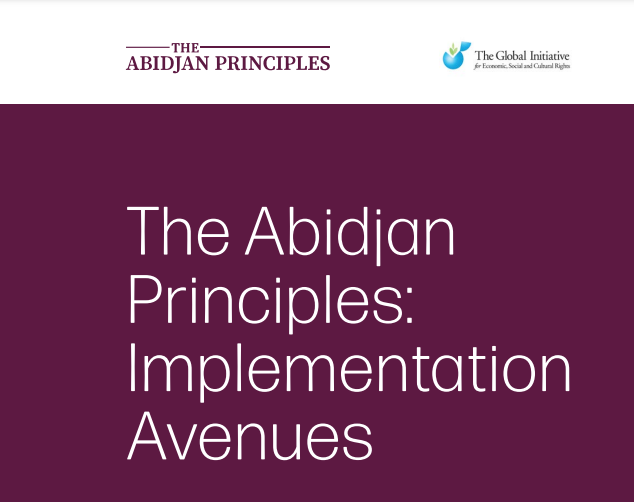GI-ESCR has created new Abidjan Principles Briefs
GI-ESCR has prepared 3 briefs on the Abidjan Principles (AP) which present in a synthetic manner essential information regarding the principles, which are a reference point for governments, educators and education providers when debating the respective roles and duties of states and private actors in education.
The Brief The Abidjan Principles: Content Overview explains the essence of the APs. Composed of 97 Guiding Principles grouped into 10 Overarching Principles, the latter provide an overview and summary of the several Guiding Principles. The Brief aims to explain the main themes covered by the Abidjan Principles, which are:
The general provisions on the RTE
States’ obligation to provide quality public education
States’ obligation to regulate private involvement in education
Financing education and public-private partnerships (PPP)
The role of donors and international actors
Monitoring, accountability and remedies
The Brief The Abidjan Principles: Process, Nature and Scope goes into detail on how the APs were developed. The several consultations and research that took place before their adoption on 13 February 2019. The adoption process is also explored, as well as the nature and scope of this document.
The Brief The Abidjan Principles: Implementation Avenues explores the ways in which the APs can and have been implemented in practice to bring about real progress for the right to education worldwide. They include:
Community-level awareness raising and mobilisation
Political mobilisation through discussion and adoption at global and regional level
Capacity building and technical support to States
Research and academic dissemination
Leveraging accountability mechanisms and development of authoritative standards
Building collaboration with other actors and movements
Further resources, including training materials, consultation reports, background papers and videos on the Abidjan Principles can be found here.



